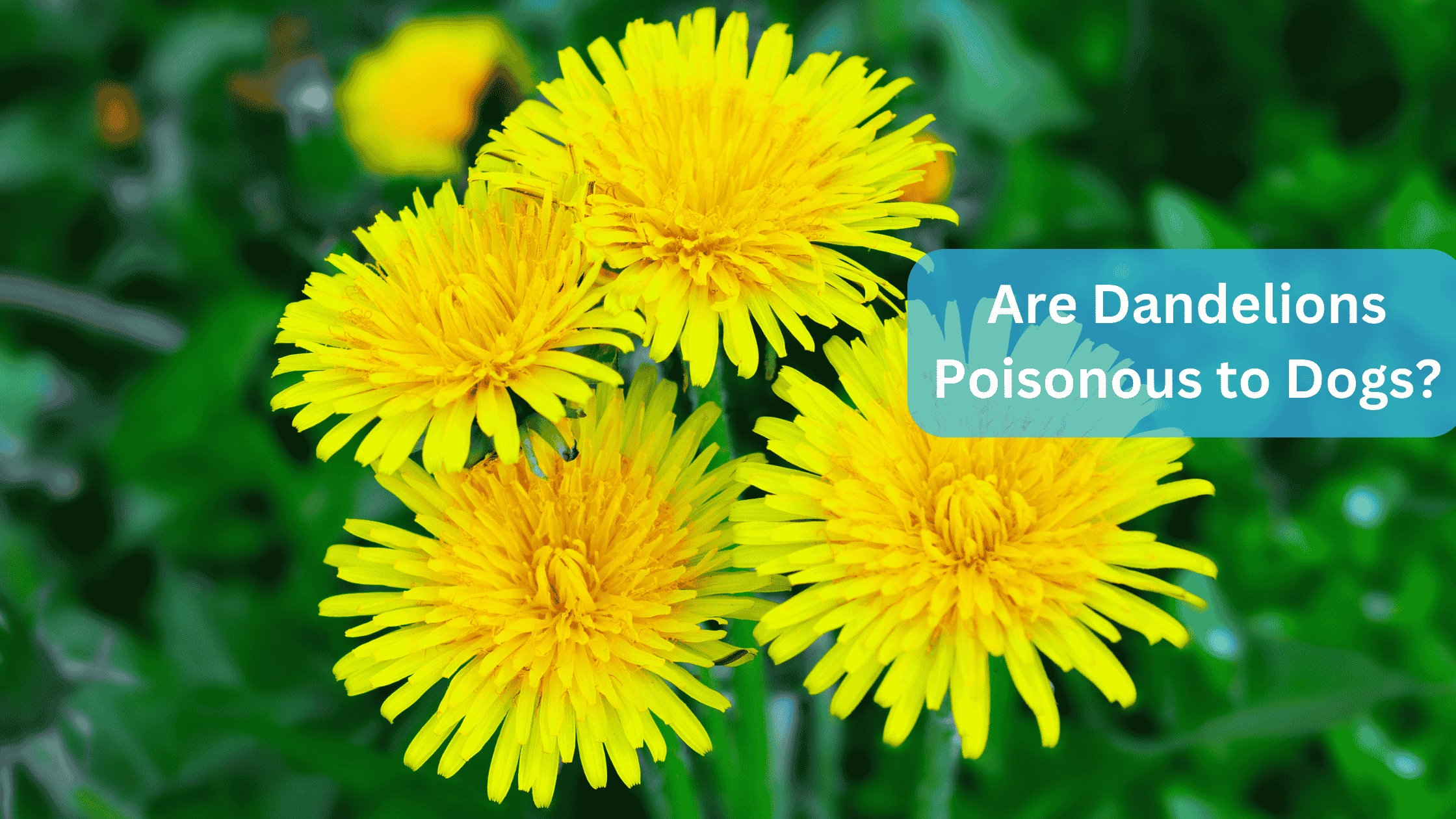Dandelions are the cheerful yellow flowers that pop up in gardens and lawns, often considered pesky weeds by homeowners.
However, these vibrant plants are more than just a nuisance; they have a long history of use in herbal medicine and can even be beneficial for our furry friends.
But the question remains: are dandelions poisonous to dogs? In this article, we’ll explore the safety of dandelions for dogs, their benefits, and what to do if your pup decides to munch on one.
Why Is My Dog Eating Dandelions?
Dogs are naturally curious creatures, and many will nibble on grass and flowers during their outdoor adventures. If you’ve noticed your dog eating dandelions, it could be due to several reasons:
- Curiosity: Dogs often explore their environment with their mouths.
- Taste: Some dogs may enjoy the slightly bitter flavor of dandelion leaves.
- Digestive Aid: Dogs may instinctively eat plants like dandelions to help with digestion or to induce vomiting if they feel unwell.
Are Dandelions Poisonous to Dogs?
No, dandelions are not poisonous to dogs! All parts of the dandelion plant—the leaves, flowers, and roots—are considered safe for canine consumption.
In fact, dandelions can provide some health benefits when fed in moderation.
However, it’s essential to ensure that any dandelions your dog consumes are free from pesticides or herbicides, which can be harmful.
Types of Dandelion
- Common Dandelion (Taraxacum officinale): This is the most recognized species, characterized by its bright yellow flowers that turn into fluffy seed heads. It’s commonly found in lawns and gardens.
- Other Species: While there are various species of dandelion, the common variety is the one most likely encountered by dogs.
Symptoms of Dandelion Consumption in Dogs
While dandelions are non-toxic, consuming large amounts may lead to mild gastrointestinal upset. Here are some symptoms to watch for:
Mild Symptoms:
- Abdominal discomfort
- Diarrhea
- Vomiting
- Increased urination (due to its diuretic properties)
If your dog shows any severe symptoms after eating dandelions or if you’re unsure about their health, consult your veterinarian.
What Happens If My Dog Eats a Dandelion?
If your dog eats a dandelion:
- Stay Calm: Remember that dandelions are generally safe.
- Monitor Your Dog: Keep an eye on them for any signs of discomfort or unusual behavior.
- Contact Your Vet: If you notice any adverse reactions or if your dog consumes a large quantity, it’s best to consult your veterinarian for advice.
Treatment Options for Dandelion Consumption
In most cases, no treatment is necessary for minor consumption of dandelions. However, if your dog experiences gastrointestinal upset:
- Provide Fresh Water: Ensure they stay hydrated.
- Monitor Their Diet: Avoid giving them heavy meals until they recover.
- Consult Your Vet: If symptoms persist or worsen, seek professional help.
Prevention Strategies for Dog Owners
To keep your dog safe while allowing them to enjoy the outdoors:
- Remove Herbicides and Pesticides: Ensure that any dandelions in your yard haven’t been treated with harmful chemicals.
- Supervise Outdoor Time: Keep an eye on your dog while they’re outside to prevent them from eating too many plants.
Dog-Friendly Alternatives to Dandelions
If you’re looking for safe plants for your garden that won’t pose risks to your dog, consider:
- Basil
- Parsley
- Carrots
These options provide tasty treats without the worry!
FAQs Section
What part of the dandelion is poisonous?
No part of the dandelion plant is considered toxic to dogs.
Are dandelions poisonous to cats?
Dandelions are also non-toxic to cats.
Can dogs eat dandelion puffs?
Yes! The fluffy seed heads (dandelion puffs) are also safe for dogs but offer no nutritional value.
Why is my dog obsessed with dandelions?
Dogs may be attracted to the taste or texture of dandelion leaves and flowers or may simply be curious about their environment.
Also Read: Is Honeysuckle Poisonous to Dogs?
Also Read: Are Crocus Poisonous to Dogs?
Conclusion
Dandelions are not only safe for dogs but can also provide some health benefits when consumed in moderation.
By understanding what parts of the plant are safe and ensuring they’re free from chemicals, you can allow your furry friend to enjoy nature without worry.
Remember to monitor their intake and consult your veterinarian if you have any concerns.
Sources:
- https://www.southernliving.com/garden/flowers/dandelion-flower-benefits
- https://www.mountsinai.org/health-library/herb/dandelion







